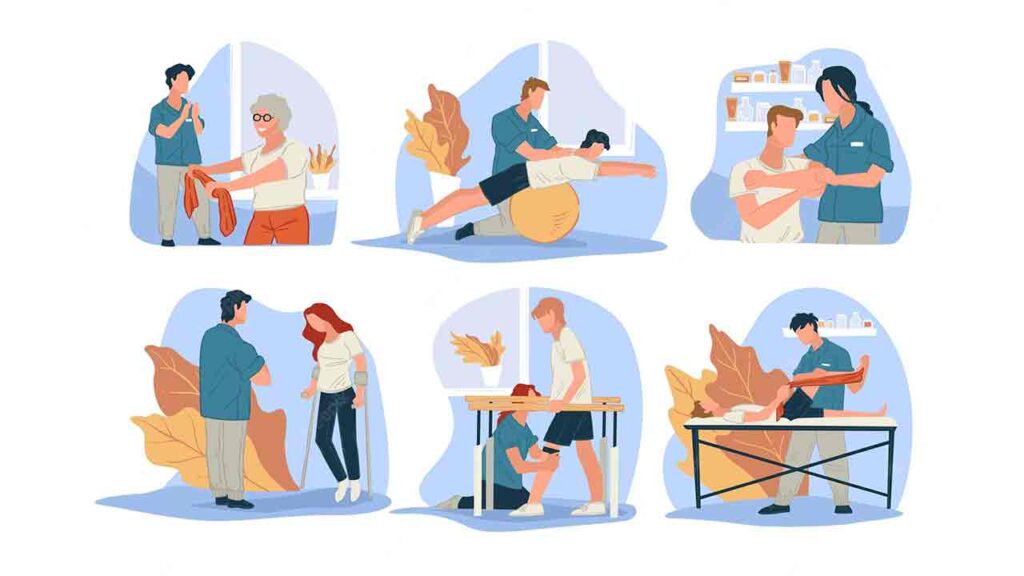Physiotherapy, also known as physical therapy, is a healthcare profession that focuses on the assessment, diagnosis, treatment, and management of physical impairments, disabilities, and pain. Physiotherapists use a combination of manual therapy techniques, exercise prescription, and assistive devices to help individuals recover from injury, manage chronic conditions, and improve their overall physical function and quality of life.
If you are considering studying physiotherapy, it is important to understand the different aspects of the profession, including the education and training required, the work environment, and the various career opportunities available.
Education and Training Requirements

To become a physiotherapist, you must complete a degree program in physiotherapy that is accredited by the relevant national or international accrediting body. In many countries, this is a master’s level program that typically takes 2-3 years to complete.
The curriculum of a physiotherapy program typically includes coursework in anatomy, physiology, biomechanics, and kinesiology, as well as clinical skills such as manual therapy, exercise prescription, and assessment and diagnosis of physical impairments.
In addition to formal coursework, physiotherapy programs also include a significant clinical component, allowing students to gain hands-on experience working with patients in a healthcare setting. This typically involves working in a variety of clinical settings, such as hospitals, private practices, rehabilitation centres, and community health clinics.
After completing a physiotherapy program, you must also pass a licensing exam in order to practice as a physiotherapist. This exam is administered by the relevant national or international regulatory body and tests your knowledge and skills in the areas of assessment, diagnosis, treatment, and management of physical impairments and disabilities.
Work Environment

Physiotherapists typically work in a variety of settings, including hospitals, private practices, rehabilitation centres, and community health clinics. They may also work in schools, sports organisations, and research institutions. A career in physiotherapy can be deemed as rewarding as it allows those pursuing the field to have a sense of job satisfaction by helping and supporting patients to regain their physical health. It is also a career which supplies immense job security due to the nature and scope of work, and allows aspiring physiotherapists to look forward to a career path where they can create change, while working in a dynamic work environment.
However, the work of a physiotherapist can be physically demanding, as they may need to perform manual therapy techniques and assist patients with exercises. It is also important to remember that the work cut out for a physiotherapist is highly challenging as it involves dealing with patients from diverse backgrounds, medical histories, complications and injuries, thereby making it important for a physiotherapist to initially understand a patient before any treatment can take place. In most cases, treatments in physiotherapy are prolonged, making that a challenge of its own.
Career Opportunities

There are many different career opportunities available for physiotherapists, depending on your interests and goals. Some physiotherapists choose to specialise in a specific area of practice, such as sports physiotherapy, paediatrics, or geriatrics. Others may choose to work in research or education, or to pursue leadership or management positions in the healthcare field. Researchers say that the need for physiotherapists is going to grow immensely as more people report problems with physical health due to rapid increase of technological advancements which limit physical movement, thereby causing problems in bone health and normal functionality of joints and muscles. It is reported that on an annual basis, more than 40% of the youth complain about complications in physical health.
In addition to traditional clinical practice, there are also a growing number of non-traditional career opportunities available for physiotherapists, such as working in the gaming industry, in industrial settings, or in telehealth. This is a newer genre of the field, and quite an interesting one, allowing aspiring physiotherapists to pick their niche according to their field of interest.
















